Plants
-
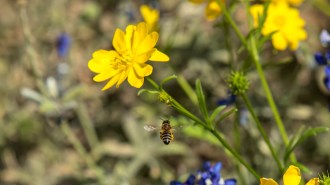 Ecosystems
EcosystemsFlowers may be big antennas for bees’ electrical signals
The finding suggests a way for plants to share information about nearby pollinators and communicate when to trigger nectar production.
-
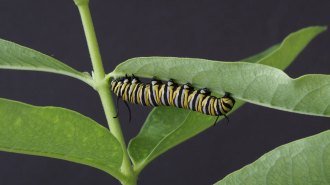 Animals
AnimalsBig monarch caterpillars don’t avoid toxic milkweed goo. They binge on it
Instead of nipping milkweed to drain the plants’ defensive sap, older monarch caterpillars may seek the toxic sap. Lab larvae guzzled it from a pipette.
By Susan Milius -
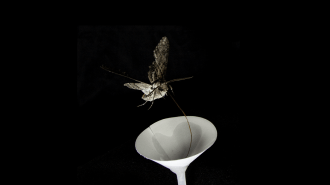 Environment
EnvironmentHow air pollution may make it harder for pollinators to find flowers
Certain air pollutants that build up at night can break down the same fragrance molecules that attract pollinators like hawk moths to primroses.
-
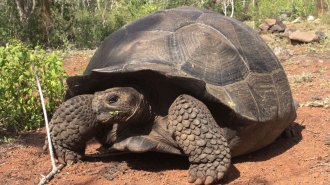 Animals
AnimalsGiant tortoise migration in the Galápagos may be stymied by invasive trees
An invasion of Spanish cedar trees on Santa Cruz Island may block the seasonal migration routes of the island's giant tortoise population.
By Jake Buehler -
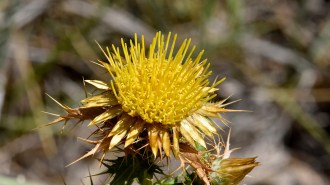 Plants
PlantsOn hot summer days, this thistle is somehow cool to the touch
In hot Spanish summers, the thistle Carlina corymbosa is somehow able to cool itself substantially below air temperature.
-
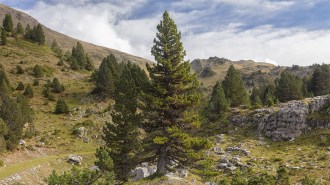 Plants
PlantsAncient trees’ gnarled, twisted shapes provide irreplaceable habitats
Traits that help trees live for hundreds of years also foster forest life, one reason why old growth forest conservation is crucial.
By Jake Buehler -
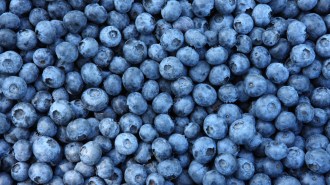 Plants
PlantsHere’s why blueberries are blue
Nanostructures in a blueberry’s waxy coating make it look blue, despite having dark red pigments — and no blue ones — in its skin, a new study reports.
-
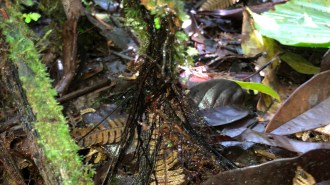 Plants
PlantsThis weird fern is the first known plant that turns its dead leaves into new roots
Cyathea rojasiana tree ferns seem to thrive in Panama’s Quebrada Chorro forest by turning dead leaves into roots that seek out nutrient-rich soil.
-
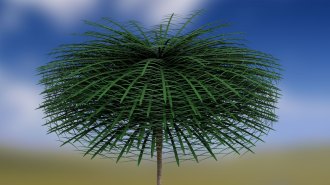 Paleontology
PaleontologyA rare 3-D tree fossil may be the earliest glimpse at a forest understory
The 350-million-year-old tree, which was wider than it was tall thanks to a mop-top crown of 3-meter-long leaves, would look at home in a Dr. Seuss book.
-
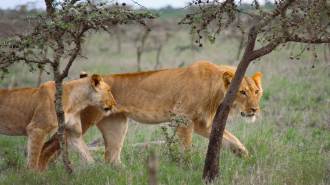 Ecosystems
EcosystemsHow an invasive ant changed a lion’s dinner menu
An invasive ant is killing off ants that defend trees from elephants. With less cover, it’s harder for lions to hunt zebras, so they hunt buffalo instead.
-
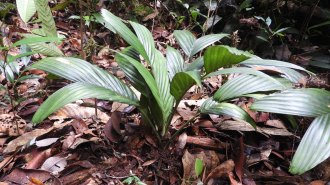 Plants
PlantsThis first-of-its-kind palm plant flowers and fruits entirely underground
Though rare, plants across 33 families are known for subterranean flowering or fruiting. This is the first example in a palm.
-
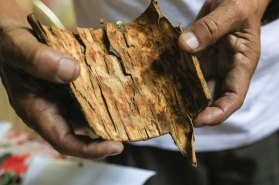 Chemistry
Chemistry‘Most Delicious Poison’ explores how toxins rule our world
In his debut book, Noah Whiteman tours through chemistry, evolution and world history to understand toxins and how we’ve come to use them.